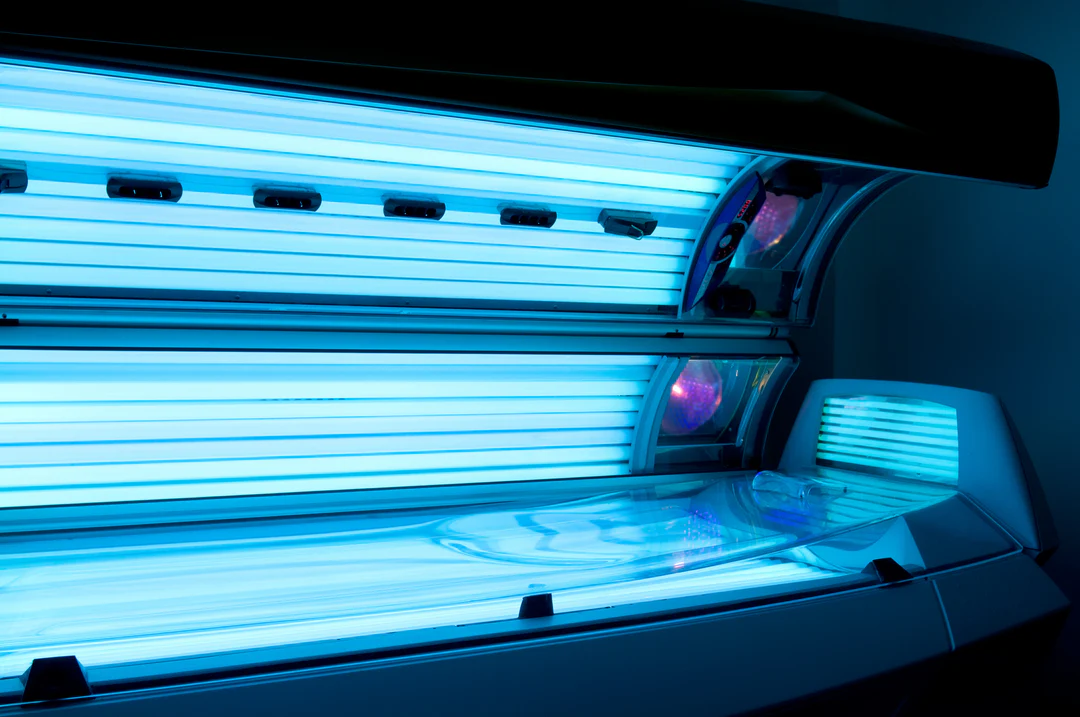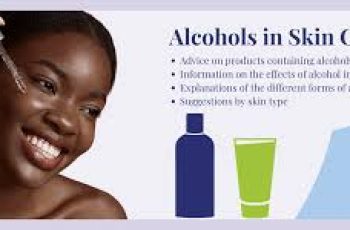
Can You Use Retinol If You Use Sunbeds?
It is advised by skincare experts that if you are using ingredients in your routine that exfoliate the skin, you are making your skin more susceptible to sunburn and potential long-term sun damage to the skin.
There is a common misconception surrounding retinol and how it works on the skin. Quite often many believe retinol, and other retinoid ingredients act as an exfoliants, which in fact is not the case. The way the potent form of vitamin A works on the skin is by increasing the speed of the skin cell turnover. This basically means fresh, new skin cells are pushed to the surface of the skin quicker, leaving you with a brighter, more vibrant complexion.
With this in mind, we are answering the question today of can you use retinol if you use sunbeds? So, without further a due, let’s find out more about using this powerful, anti-ageing ingredient whilst exposed to UV light. If you are wanting to know about retinol and more specifically its skincare benefits, check out our dedicated blog post over on The Beauty Insiders.
Can you use retinol if you use sunbeds?
Technically yes, this is due to retinol not necessarily changing how the skin reacts when it’s exposed to sun light. What you will find is that retinol is sensitive to UV exposure and becomes completely useless, which is why it is considered most effective when applied during your evening skincare routine. As for using retinol if you use sunbeds, this is something can feel a little counter intuitive since retinol is one of the most potent age combating ingredients. Therefore, if you are wanting to reduce the signs of premature ageing, you should probably try your best to avoid sunbeds all together. If you are wanting to continue using sunbeds, it is best to prevent your face from being exposed to too much UV light whilst on a sunbed and always wear a daily SPF of 50, even on days that look overcast.
Does retinol remove suntan?
Yes, it is known for retinol to remove areas of suntan. This is because a natural suntan is a result of an increase of melanin making its way to the surface and changing the overall tone of the skin. Scientifically speaking, suntan is technically sun damage which is one of the main concerns combated by retinoids. Hyperpigmentation, dark spots, and acne scarring are all treated by topical retinols. You may find that after continuing to use retinol products whilst away on holiday you’ll find your face may not get as tanned as you expected or can appear to look uneven in skin tone. It is vital to apply a daily SPF every day and if sunbathing to continue to reapply throughout the day, better still avoid staying out in the sun for prolonged amounts of time.
What happens if you go into the sun with retinol?
You’ll find that if you go into the sun with retinol on the face, your skin will become increasingly irritated, potentially itchy and red. This is because retinol can increase the photosensitivity of the skin to exposure to daily UV rays. As I have already said, you will also find that the effectiveness of retinol is decreased with exposure to the sun meaning there is no value to using it during your morning routine. It is best to apply retinol in the evening and apply an SPF the following morning to ensure the skin is fully protected from further sun damage.
Should I stop using retinol in the summer?
No, there is no need to stop using retinol during the summer, if it is used in the correct way. By now you understand there is no need to use retinol during the day, instead it should be applied during the last stages of your evening routine. When used in the evening, you’ll find that it is able to work uninterrupted by free radicals your skin usually encounters during the day, such as pollution and harsh climates. You’ll find you will be able to reap the rewards whilst you catch up on your beauty sleep.
Does retinol ruin fake tan?
Yes, retinol is known for ruining fake tan. Because of how it works on the skin surface and its ability to kill off dead skin cells you’ll find that if you apply fake tan products or have a spray tan, your face will fade a lot quicker than the rest of your body. It is not just retinol that can cause your tan to fade, other ingredients, such as chemical exfoliates like glycolic acid, lactic acid and vitamin C are also known for sloughing away dead skin cells and removing the results of whichever products tanning product you use.
If you are wanting to prolong the results of fake tan, it is considered best to switch your skincare routine for products containing ingredients such as hyaluronic acid, niacinamide and other nourishing formulas to help prolong your desired colour.
What cannot be applied with retinol?
There are a few ingredients that should not be applied to the skin with retinol. These are, vitamin C, benzoyl peroxide, and AHAs/BHAs, such as glycolic acid and salicylic acid. It is best for those with avoid mixing any of these with retinol because of the variety of pH levels each of these ingredients contain. Unbeknownst for many, when there is an imbalance in the pH levels quite often it will result in a flare-up in redness, itchiness, flaking, and tightness to the skin.
This does not mean you should avoid using these ingredients in your routine if you also use retinol. It is just a case of applying them during different times of the day or alternate days entirely. Once you have established a routine that works for you, you can expect to benefit from all the actives without the worry of any allergic reactions or irritation.
Remember if you have any concerns with trying out a new ingredient or product on the skin, consult with a doctor or dermatologist for the peace of mind you are using the best formulas for you and your skin. Don’t forget to come and follow us on Instagram for new product launches, exclusive discounts, and skincare expert tips.
DQH Knowledge drop: In your 20s, your skin cell turnover decreases. (Cell turnover is a key component in keeping your skin youthful.) You know what else slows down? Your collagen production. Starting in your 20s, collagen decreases by about 1 percent per year. Should you want to prevent fine lines and wrinkles, start by eliminating behaviors that contribute to premature aging. “If it’s bad for you, it’s bad for your skin,” says dermatologist Michel Somenek.
“Cigarette smoking reduces blood flow to the skin and causes premature wrinkling and a dull skin texture. Making the repeated pursed motion to inhale can also cause smoker’s lines. Alcohol and recreational drugs are toxins for the skin that damage its cellular structure and DNA,” Somenek tells us. “The faster you eliminate vices while you are young, the better chance your skin and body have to recuperate.” Also, adopting an anti-aging routine in your 20s is key. After all, the best offense is a good defense. We spoke to Somenek and experts Joshua Ross and Audrey Kunin to find out more.
Keep reading for the best anti-aging products for your 20s, according to skincare professionals.
Sunscreen
“We all know that the sun is the number one cause of skin aging and starting the prevention in your 20s is very important,” Ross says. “The majority of your sun damage won’t start to appear until you’re in your 30s, so don’t wait until you see it surface or you’ll be behind the curve. Stay ahead of it with a good-quality zinc-based sunscreen worn daily.”
Farmacy Green Defense Daily Mineral Sunscreen
An invisible sunscreen with SPF 30, plus botanical extracts meant to protect skin with tons of antioxidants. Bonus: It’s clean and fine to use under makeup.
Bareminerals Complexion Rescue™ Tinted Moisturizer Broad Spectrum SPF 30
Although we recommend you use your SPF and moisturizer separately, we also understand moments when you don’t have time or energy for that extra step. For those times, this bareMinerals moisturizer is a great thing to have on hand.
Vitamin C Serum
“A great introduction to anti-aging is to start with a vitamin C serum in your morning skincare routine,” Ross says. “It’s a powerful antioxidant that will neutralize free radicals and brighten the skin.” He adds that it’s a great way to counteract the effects of the sun’s harmful rays, which, as previously mentioned, are among the biggest causes of premature aging.
Drunk Elephant C-Firma™ Vitamin C Day Serum
The Drunk Elephant C-Firma is a lightweight serum that promises to give skin a glow by combining the brightening powers of vitamin C with ferulic acid, l-ascorbic acid, and vitamin E. The included sodium hyaluronate is meant to replace hydration loss, so you shouldn’t have to deal with any irritation.
Sunday Riley C.E.O. Rapid Flash Brightening Serum
This potent serum is jam-packed with vitamin C (15 percent, to be exact), which means it’s a potential superstar at both brightening skin and dousing it in antioxidants.
Peptides
Using peptides on your skin has many benefits, says Somenek. “The skin barrier is what defends the body against pollution, UV rays, bacteria, and toxins. It can be damaged by several everyday factors. Using topical peptides aids in building a stronger barrier,” he says. “Peptides comprise elastic fibers, which are a type of protein. These fibers help to make skin appear taut and firm. Peptides can also help repair damaged skin, relieve inflammation, and even out skin tone. Some peptides can kill acne-causing bacteria that is common in 20-somethings.”
Kunin agrees, saying, “Peptides are an excellent entry point for supporting collagen.” She recommends looking for face and eye treatments that contain these collagen-boosting powerhouses.
Charlotte Tilbury Magic Eye Rescue Cream
This Charlotte Tilbury super-emollient eye cream has a base of coconut oil and shea butter (read: it’s incredibly hydrating). Botanicals plus peptides are meant to help reduce dark circles and boost collagen, respectively.
This creamy moisturizer serves up potent collagen-boosting peptides and pycnogenol, and antioxidant-rich vitamin C. “Instead of sitting on top of the skin, peptides penetrate the outer layer so they go deep. The ‘signals’ they send tell the cells to produce elastin and collagen, which are needed for youthful-looking skin,” explains Somenek.
At-Home Peel Pads
Remember that skin cell turnover fiasco we talked about earlier? One way to help support it is by exfoliating. “Exfoliation is important to help keep skin fresh and luminous,” Kunin says. She recommends using at-home peel pads as an easy and effective way to exfoliate.
“The goal in your 20s is to fight the slowing pace of cell turnover. It is wise to use products that gently exfoliate, yet still remove oil and other impurities. Products that have Alpha Hydroxy Acids (AHA) or Beta Hydroxy Acids (BHA) are a good choice.”
According to Somenek, you should only exfoliate two to three times a week. “People of all ages are guilty of over-exfoliating and that can be too much of a good thing,” he says.
Dermadoctor Kakadu C Intensive Vitamin C Peel Pad
A few swipes of this Derma Doctor powerful peel pad promise to leave your skin glowing and smooth, thanks to the seven (yes, seven) types of chemical exfoliants, including AHA and BHA. It also contains vitamin C via Kakadu plum extract for added brightening and antioxidant protection.
KEY INGREDIENTS Kakadu plum extract is sourced from the Kakadu plum, a fruit grown in northern Australia. It contains vitamin C, which restores the skin’s natural barrier, increases collagen production, and soothes irritation.
Dr. Dennis Gross Skincare Alpha Beta® Universal Daily Peel Pads
These are the gold standard of peel pads, with a cult following and over 900 five-star reviews on Sephora. They’re easy to use and contain a blend of anti-aging exfoliating acids.
Emollient Night Cream
“In your 20s, you need to start upping the hydration in your skincare routine. You may have been cautious of over-moisturizing because of acne in your teens, but as you enter your 20s, your skin transitions and becomes drier,” Ross says. “I recommend an emollient night cream added into your evening skincare regimen.”
“Twenty-somethings need to make sure that they are not using creams that will clog their pores and cause excess oil production,” says Somenek. Opt for non-comedogenic products.
Cerave Skin Renewing Night Cream
One great choice is the CeraVe Skin Renewing Night Cream, which is a non-comedogenic night cream that leaves skin soft and glowy. It combines the moisturizing powers of ceramides and hyaluronic acid.
RoC Retinol Correxion Max Hydration Creme
“The best night cream ingredients contain retinol, benzoyl peroxide, and/or salicylic acid or hyaluronic acid. The goal is to moisturize, yet remove excess oil,” says Somenek. This Roc Retinol Correxion cream fits the bill as it contains both hyaluronic acid and retinol so it promises to moisturize while also being non-comedogenic.


